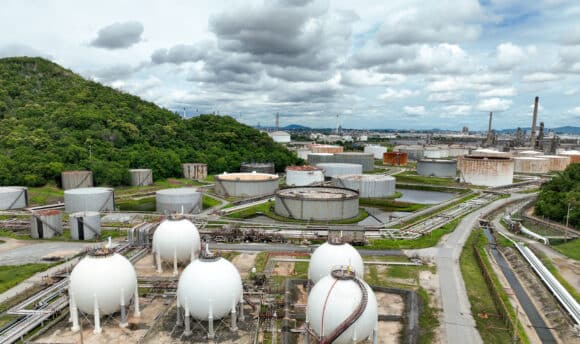Hartford, CT – Advocates calling for climate action from The Hartford said the insurer and its largest shareholders failed the climate test in light of results of a vote on a climate shareholder resolution at the company’s annual general meeting (AGM) last Wednesday.
Shareholders were asked to vote on a resolution filed by Green Century Funds, which called for The Hartford to phase out underwriting risks associated with new fossil fuel exploration and development projects, in line with the IPCC’s 1.5ºC global warming pathway. The proposal received 9% support, equivalent to $1.64 billion in shares.
“The Hartford likes to present itself as one of the most ethical companies in the world. But last week’s outcome was a stark reminder that The Hartford and its biggest shareholders, including some of the biggest institutional investors in the world, are totally failing to address their role in climate change, the greatest risk of all. That doesn’t sound too ethical to me. The Hartford needs to stop underwriting new planet-destroying projects. They still have time to live up to their ‘ethical’ promise…but not much.”
The general meeting was held the same week that the World Meteorological Organization announced a 66% chance that before 2027, the planet will register a year in which the global air temperature will be 1.5°C or more above pre-industrial levels. This is due to a combination of global warming and natural variability.
Earlier this year, the Connecticut state legislature considered a bill that would impose a surcharge on property and casualty insurers operating in the state that underwrite fossil fuels, with the revenue going to communities affected by the impacts of climate change. The legislation failed to pass, and this shareholder proposal offered another opportunity to hold an insurer accountable for its role as a financial backer of fossil fuels.
“The Hartford’s biggest shareholders and the proxy advisors that provide voting guidance to investors have failed to decisively support a proposal that would point the insurer on a path to keeping global warming within 1.5°C. As the climate emergency intensifies, it is a slap in the face to communities that are bearing the costs of pollution, extreme weather events, and reduced insurance availability as insurers flee areas hit by climate impacts while remaining loyal to the fossil fuel companies that caused the problem in the first place.”
Advocates contrast The Hartford’s weak climate commitments to that of 15 other re/insurers worldwide that have adopted underwriting restrictions on new oil and gas, including Chubb, the first U.S. company to do so.
Additionally, The Hartford has not adequately responded to requests to talk from communities at risk from fossil fuel projects, such as the Gwich’in Steering Committee, which has requested dialogue regarding oil drilling in the Arctic National Wildlife Refuge.



